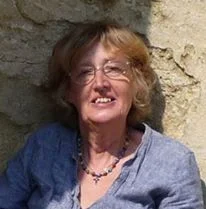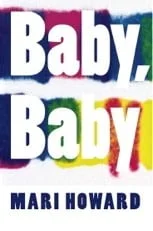Choosing to self-publish liberates authors from the need to write within the constraints of fiction genres favoured by trade publishers. English novelist Clare Weiner (pen name Mari Howard) makes a compelling case for defying genre in order to write better books.
We’ve bought our coffees, we’ve found a table. Way before her behind touches down on her chair, she asks ‘What genre’s your book?’
I was new to the game of meeting up with other writers, though I’d got a couple of completed novels in manuscript, and some good full-page comments from the rejecting publishers, (who hadn’t mentioned genre). Inwardly, I wondered, if we have something to say, must we first decide a genre, then fit our story into it? Or, (to put it romantically), write right from the heart?
Who Needs Genre Anyway?
Khaled Hosseini’s Thousand Splendid Suns, which engages with the lives of women in Afghanistan, is a great example for heart writers: it is the story itself which matters. And how Hosseini tells it, fitting no specific genre, which compels. Traveling at speed, across Germany and France, I wasn’t hemmed in by passengers from across the EU. I was in Afghanistan with Hosseini. Surfacing briefly, in Brussels, to change trains.
His latest, And the Mountains Echoed, has several narrators, and includes letters, and a fictional interview. Does he get away with this ‘because he’s famous’? Or because his storytelling comes from the heart? Or, because his storytelling builds on long tradition?
JRR Tolkien’s Lord of the Rings is a massive tome: why does Tolkien get away with it? His storytelling also builds on a long tradition, and he knows that tradition very well. It’s also a work from the heart: Tolkien, like Aldous Huxley, was concerned for the future of the post-war world, technological developments, and the political landscape.
African and Middle Eastern Role Models
African and Middle Eastern writers have captured the market (at least for me) in terms of heart writing. They’re asking the big questions. Interestingly, subjects which western writers express with ‘visceral’ detail are presented in a dry, matter-of-fact, minimalistic prose, like a shocked silence: ‘it was horrible, so horrible you would not want to’ve been there. It happened. How can human beings be so cruel?’ While we are presented with increasingly graphic visual detail in movies, newsreels, and even on stage, such writing, ironically, demonstrates the powerfulness of less-is-more. Underplaying for impact belongs specifically to the written word.
I believe we need fiction that asks the big, controversial, questions, and highlights the impossibility of easy answers. It can’t be done inside a genre. It may visit all but belongs inside none: it belongs to a larger canvas, a freer field. It is ‘writing without borders’, but your storytelling must still be tight.
And without the usual givens. My writing magazine has run several pieces on ‘sex scenes’. The most moving romance I’ve ever read is by Leila Aboulela, a Sudanese Muslim writer, who describes relationships with immense depth and insight, and yet without ‘sex’. It’s as if Aboulela is freed, by her determination to write within her religious tradition, from having to put together a convincing scene from crass action, humour about body parts, and the generally messy side of sexual intercourse. In The Translator she explores, with insight, and without sentimentality, the tender, the cautious, and the deeply moving. It’s a very ‘different’ book, incredibly powerful, and will stay in my mind forever, chiming with reality.
If what I put down is half as good (and she certainly inspired me when writing Baby, Baby), I might call myself a writer.






Sure my work may cross-between contemporary, dystopian, heroic fantasy, and time travel. But that’s because as long as I feel the core concept is authentic I don’t mind even having a duel timeline work with French Revolution guillotines in the same prose as spaceships piloted by sentient rodent hackers from Venus.
For me the core authenticity is what matters for me.
In tribute to the beautifully illustrated “less is more” ideal: A short note to say thank you, I very much enjoyed this article.
[…] Sourced through Scoop.it from: https://www.selfpublishingadvice.org […]
Clare, so much to think about in what you write here. That writing can be deeply emotive and moving yet dignified and minimalist too – a paradox. The interplay between the writer’s skill and the reader’s imagination, perhaps?
Penny, I think you’re probably right! I just hope I:m developing the skill to penetrate/engage the reader’s imagination enough that they empathise with the characters without having to have everything ‘spelt out’!! That’s what Aboulela can do.
Although I used the broad conventions of the thriller when I wrote my novel ‘Hard Change’, I couldn’t agree with Clare more. I found those conventions useful, because they gave me a good starting point and my story, which featured crime, conspiracy and conflict, was a good fit. However – and this is the beauty and freedom of self-publishing – I felt no compunction about subverting those conventions when it suited my purposes. In fact, in the end I found I more or less invented my own sub-genre, the ‘town hall thriller’!
One of my major motivations for writing ‘Hard Change’ was that I wanted to present a recognisable portrait of local government in the UK – the positives as well as the negatives. I am personally committed to the concept of public service and the public good, so I absolutely agree that you have to write from the heart. If you do, I’ve found readers see that and are more than willing for you to take them beyond the confines of traditional genres.
This obsession with the word ‘genre’ while useful to librarians and cataloguers, does so-called genre writers no favours. Conan Doyle, Chandler and a host of detective fiction writers are novelists of literary genius. OK, they may be more concerned with plot or ideas than character, but that doesn’t make them in any way inferior. As for ‘writing from the heart,’ I’m not sure that that’s such a good slogan. I’d prefer ‘Write without constraints or preconception’ though I agree it’s a bit of a mouthful. When Dickens wrote ‘from the heart’ he was often at his worst.
I very much enjoyed reading this article, as the subject of genres is continually on my mind as I write my second novel. I learnt to dread the ‘Which genre is your book?’ question regarding my debut novel because it doesn’t fit into any genre. It was my story, flowing straight from the heart without any thought as to how I was going to promote it. Nowadays I’m wiser about the marketing benefits of being able to label my work as a particular genre, but I worry that my writing is going to suffer as a result. It’s interesting to read other writers’ view on the subject.
David, Interesting. I agree: much quality detective fiction is extremely well written, tightly plotted, impressive.
Maybe ‘from the heart’ is a dangerous and possibly an ambiguous description. Certainly Tolkien, Hosseini, and Aboulela don’t smear sentiment or woolly, incoherent and un-thought-out personal ideas across their pages… as I attempted to explain in my reference of Aboulela’s ‘The Translator’, tight, careful, thoughtful writing is employed. Less is often more. From the heart in terms of passion for the subject, not in terms of ‘let it all hang out, it’s about feelings…’
Alison, Yes: I am worried, too, about the promotional side, since the ‘genre thing’ seems so powerful in defining how we (are expected to) describe our work today. I;m thinking a lot about marketing as I work on my follow-up to Baby, Baby.
Dear Clare,
Many thanks for a wonderful article. It is all about the story.
And reminding me of those Mideastern and African writers that I need to read more. I’ve read Hosseini but now I’ll be looking for Leila Aboulela. As well as Baby, Baby.
Keep writing!